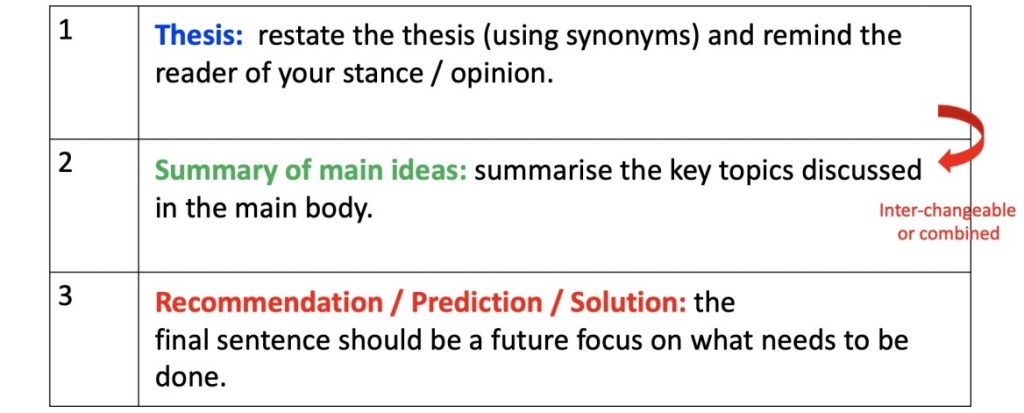In the realm of nursing education, the case study essay stands as a crucial assessment tool. It allows students to apply theoretical knowledge to real-world scenarios, developing critical thinking, problem-solving, and communication skills essential for the profession. Mastering the art of writing a compelling case study nursing essay requires a structured approach, encompassing careful analysis, insightful reflection, and effective communication.
This comprehensive guide will equip you with the necessary tools and strategies to excel in the challenging yet rewarding task of case study nursing essay writing.
The Essence of Case Study Nursing Essay Writing
The essence of case study nursing essay writing lies in bridging the gap between theory and practice. It's not merely about regurgitating facts or applying textbook knowledge; it's about demonstrating a deep understanding of nursing principles and their application to real-world patient scenarios.
Here's a breakdown of the key elements that define the essence of a case study nursing essay:
1. Critical Thinking and Analysis:
At its core, a case study nursing essay demands critical analysis of a specific patient situation. You must dissect the presented information, identify key issues, and analyze their potential impact on the patient's health and well-being. This involves going beyond simply listing symptoms or facts; it's about understanding the interplay of physiological, psychological, and social factors influencing the patient's care.
2. Application of Nursing Knowledge:
This essay type requires you to apply theoretical frameworks, nursing principles, and evidence-based practices to the case study. You're not just describing the situation, you're demonstrating your ability to use your knowledge to formulate nursing diagnoses, develop care plans, and make informed decisions regarding patient management.
3. Problem-Solving and Decision-Making:
Case studies often present complex scenarios with multiple possible approaches. The essence of the essay is to demonstrate your ability to critically analyze the situation, weigh the pros and cons of different interventions, and justify your chosen course of action. This requires you to think like a nurse, considering the patient's individual needs, potential risks and benefits, and ethical considerations.
4. Communication and Professionalism:
Finally, a case study nursing essay demands clear and concise communication of your analysis, reasoning, and recommendations. You must articulate your thinking in a professional manner, using appropriate terminology and avoiding jargon. The essay should reflect your understanding of the ethical and legal implications of nursing practice, demonstrating your commitment to providing safe, compassionate, and effective care.
In essence, a case study nursing essay is an opportunity to showcase your ability to integrate theory with practice, demonstrating your competence as a future nurse. It's about applying your knowledge, engaging in critical thinking, and making well-informed decisions that contribute to optimal patient outcomes.
Steps for Writing a Compelling Case Study Nursing Essay
1. Understanding the Assignment:
The first step is to thoroughly comprehend the assignment requirements. This involves carefully reading the prompt, identifying the specific focus of the case study nursing essay, and understanding the expected scope and depth of analysis. Pay close attention to any specific instructions regarding length, formatting, and referencing style. Here's a sample of a nursing essay assignment.

2. Choosing the Case Study:
If you have the freedom to select your own case study, choose one that resonates with your interests and aligns with your learning objectives. A case study that presents complex scenarios, ethical dilemmas, or unique patient needs will provide a richer learning experience and a more engaging case study nursing essay.
3. Analyzing the Case Study:
Once you've chosen your case study, a thorough analysis is crucial. This involves dissecting the information presented, identifying relevant medical history, current symptoms, social determinants of health, and any other pertinent details. Use a systematic approach, such as the SOAP (Subjective, Objective, Assessment, Plan) format, to organize your findings.
4. Identifying the Key Nursing Issues:
From your analysis, pinpoint the key nursing issues presented in the case study. These could include:
- Physiological Concerns: Addressing immediate health needs, monitoring vital signs, and managing symptoms.
- Psychological Considerations: Addressing emotional well-being, coping mechanisms, and mental health issues.
- Social Determinants of Health: Understanding how factors like poverty, lack of access to healthcare, or social isolation influence the patient's health.
- Ethical Dilemmas: Navigating complex situations involving patient autonomy, informed consent, or conflicting priorities.
5. Developing a Clear Thesis Statement:
A strong thesis statement is the backbone of your case study nursing essay. It provides a concise and focused argument about the key issues identified in the case study. A well-crafted thesis statement should:
- Be clear and concise: It should be easy to understand and state your main argument directly.
- Be specific: Avoid broad generalizations and focus on the particular issues and insights you will explore in your essay.
- Be arguable: Your thesis statement should present a position that can be supported with evidence and analysis.

6. Researching and Gathering Evidence:
Once you have identified the key nursing issues and developed your thesis statement, it's time to gather supporting evidence. This involves researching relevant nursing literature, professional guidelines, and best practices related to the issues you're addressing. Use reputable sources such as:
- Nursing textbooks: Provide comprehensive theoretical frameworks and evidence-based guidelines.
- Professional journals: Offer the latest research and clinical findings in various nursing specialties.
- Nursing organizations: Provide guidelines, position statements, and best practices specific to nursing care.
- Government websites: Access data on health statistics, disease prevalence, and healthcare policies.
7. Applying Nursing Theories and Frameworks:
A key aspect of a successful case study nursing essay is applying relevant nursing theories and frameworks to the analysis. This demonstrates your understanding of theoretical concepts and how they translate into practical application. Some commonly used frameworks include:
- The Nursing Process (ADPIE): A systematic approach to patient care, involving assessment, diagnosis, planning, implementation, and evaluation.
- Maslow's Hierarchy of Needs: Understanding the hierarchy of human needs and prioritizing care accordingly.
- Orem's Self-Care Deficit Theory: Analyzing the patient's ability to manage their health needs and providing support when necessary.
- Roy's Adaptation Model: Examining the patient's ability to adapt to stress and illness and supporting their coping mechanisms.
8. Writing the Body Paragraphs:
The body paragraphs of your case study nursing essay should provide evidence and analysis to support your thesis statement. Each paragraph should focus on a specific issue or aspect of the case study, presenting your findings, applying relevant nursing theories, and linking them back to the overall argument.
- Use clear and concise language: Avoid jargon or technical terms that might confuse the reader.
- Provide specific details and examples: Use the information from the case study to illustrate your points.
- Include relevant citations: Support your claims with evidence from reputable sources.
- Maintain a professional tone: Avoid personal opinions or subjective biases.
9. Drawing Conclusions and Recommendations:
The conclusion of your case study nursing essay should summarize your key findings and reinforce your thesis statement. It should also provide recommendations for patient care, based on your analysis and the evidence you've presented. Consider the following:
- What are the key takeaways from your analysis?
- What are the implications for nursing practice?
- What are the limitations of the case study?
- What are the potential areas for further research?

10. Revising and Editing:
Once you've completed your first draft, take time to revise and edit your case study nursing essay. This involves:
- Ensuring clarity and coherence: Check for logical flow and transitions between paragraphs.
- Correcting grammar and spelling errors: Pay attention to punctuation, sentence structure, and word choice.
- Checking for plagiarism: Ensure that all sources are properly cited and that you are not plagiarizing any material.
11. Formatting and Presentation:
The final step is to format your case study nursing essay according to the specified guidelines. Pay attention to:
- Font style and size: Use a clear, readable font, such as Times New Roman or Arial, in a standard size (12pt).
- Margins and spacing: Use standard margins (1 inch) and double-spacing throughout the essay.
- Heading and subheadings: Use headings and subheadings to organize your essay and improve readability.
- Citation style: Follow the designated referencing style, such as APA or MLA, and ensure consistency throughout the essay.
Tips for Writing a Successful Case Study Nursing Essay:
- Start early: Give yourself ample time to complete the assignment, allowing for research, writing, and revision.
- Break down the task: Divide the writing process into smaller, manageable steps to avoid feeling overwhelmed.
- Seek feedback: Ask your professor or a trusted peer to review your essay and provide constructive criticism.
- Practice your writing skills: Regularly write about nursing concepts and theories to improve your clarity and communication.
- Stay informed: Keep up with the latest developments in nursing practice and research by reading professional journals and attending conferences.
Writing a successful case study nursing essay is a valuable learning experience that helps you develop critical thinking, problem-solving, and communication skills essential for a successful nursing career. By following the comprehensive guidelines outlined in this article, you can approach this assignment with confidence, demonstrating your understanding of nursing theory and practice in a clear, concise, and insightful manner.
Remember to prioritize clarity, evidence, and critical analysis, and most importantly, strive to convey your knowledge and insights in a professional and engaging way.
Get Professional Case Study Nursing Essay Writing Help
At Exemplary Dissertations, we have highly experienced academic writers to assist you in crafting a top notch case study nursing essay for academic success. Our service covers topic suggestion, essay writing, proof reading, and plagiarism removal. Besides case study nursing essays, we can also help you with writing nursing research papers and dissertations.